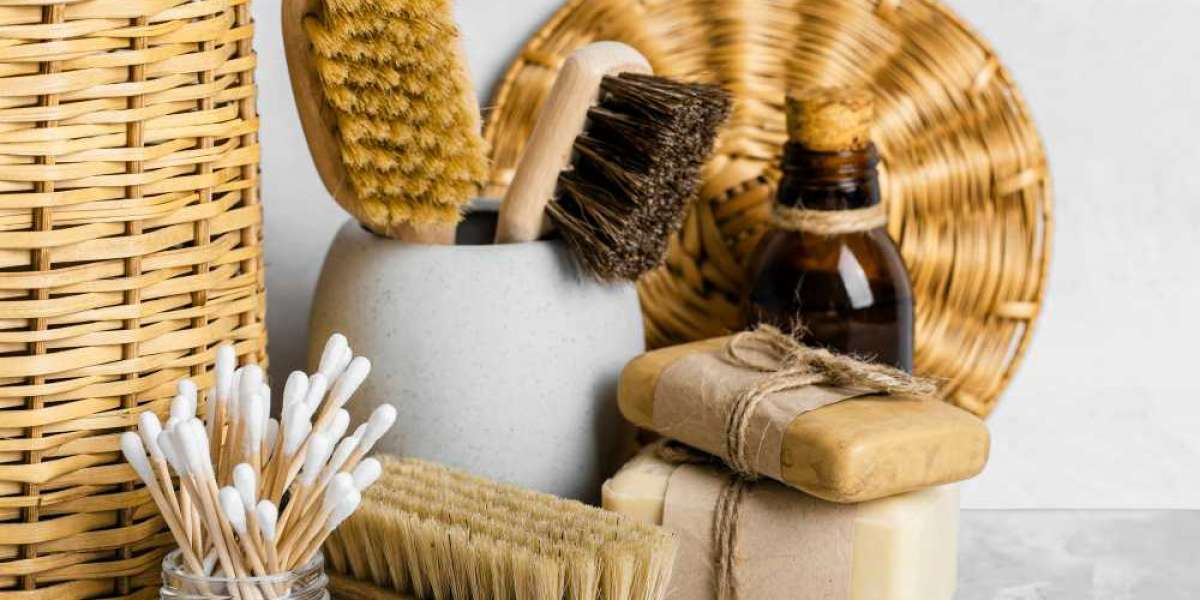As convenience often trumps sustainability, it can be easy to overlook the impact of our everyday choices on the environment. From disposable water bottles, we take with us on trips to paper towels we use when cleaning up spills, our household habits contribute significantly to growing landfills and pollution levels.
But even small changes can make an impactful statement: by replacing some everyday household items with eco-friendly alternatives rather than throwing in a large dumpster, we can significantly lower our environmental footprint while moving toward a more eco-friendly life.
- Ditch disposable water bottles.
Plastic water bottles have become an indispensable symbol of modern convenience, but their environmental impacts are undeniable. From production to disposal, their production contributes significantly to greenhouse gas emissions, pollutes waterways, and threatens marine life - and yet there's an eco-friendly solution available: reusable water bottles.
Investing in a reusable water bottle benefits both yourself and the environment. Doing so can significantly reduce plastic waste and save money by not purchasing bottled water continuously. Additionally, a reusable water bottle encourages you to stay hydrated and helps maintain good health.
- Switch to reusable napkins and towels.
Paper napkins and towels are everyday household products contributing to deforestation and waste generation. Every year, millions of trees are used to create paper products; most end up in landfills as waste. But there is an easy, sustainable solution: reusable napkins and towels!
Eco-friendly cloth materials make reusable napkins and towels that people can wash and reuse several times. Reusable napkins and towels are more absorbent than paper alternatives and are more economical in the long run.
- Switch to bamboo toothbrushes.
Plastic toothbrushes are one of the primary sources of microplastic pollution. Once these toothbrushes reach landfills, they break down into microplastic particles, which pollute our waters and endanger marine life. But there's an eco-friendly alternative: bamboo toothbrushes!
Sustainably harvested bamboo is an abundant and rapidly renewable resource that produces bamboo toothbrushes. These toothbrushes effectively perform their task and naturally biodegrade at the end of their lifespan.
- Swap out plastic wraps with reusable beeswax wraps.
Plastic wrap and aluminum foil can make storing food easy, but their use contributes to plastic waste and environmental pollution. Luckily, there is an eco-friendly alternative: reusable beeswax wraps.
Beeswax wraps are eco-friendly food storage solutions. You can use beeswax wraps to cover food products for storage or prevent bacteria growth on containers - plus, they're reusable, washable, and compostable! They make an eco-friendly option.
- Carry reusable shopping bags.
Plastic bags are one of the primary sources of litter and pollution, often used once or twice before being discarded and winding up in landfills or waterways. But there is an eco-friendly solution - reusable shopping bags!
Sturdy fabrics like canvas or cloth make up reusable shopping bags, providing long-term usage and the ability to use them repeatedly. These bags are lightweight, foldable, and easily stored in cars and purses for convenient access, making shopping a hassle-free experience!
- Opt for compostable kitchen sponges and scrubbers.
Conventional kitchen sponges and scrubbers, often constructed of plastic and filled with hazardous chemicals, pose a significant environmental threat when discarded - they break down into microplastics, which pollute waterways and harm marine life. But there is an eco-friendly alternative: compostable kitchen sponges and scrubbers.
Compostable kitchen sponges and scrubbers are made of biodegradable materials such as cellulose or loofah that can be composted at home or municipal composting facilities, providing just as effective results but biodegrading naturally at the end of their useful lifespan.
- Upgrade to energy-efficient light bulbs.
Incandescent and halogen light bulbs are energy inefficient, using significantly more electricity than LED lights and contributing significantly to greenhouse gas emissions and air pollution. But there's an eco-friendly solution: energy-saving LEDs!
LED bulbs last 25 times longer and produce less heat - helping lower energy bills simultaneously!
By making simple swaps for everyday household items, we can significantly lower our environmental impact and work toward a more eco-friendly lifestyle. Even small yet significant changes can make a substantial impact. Together, we can build a brighter future for ourselves and unborn generations.




